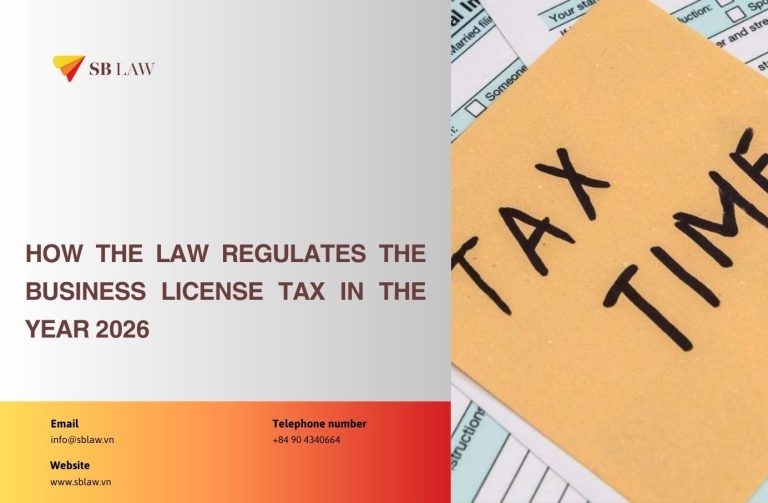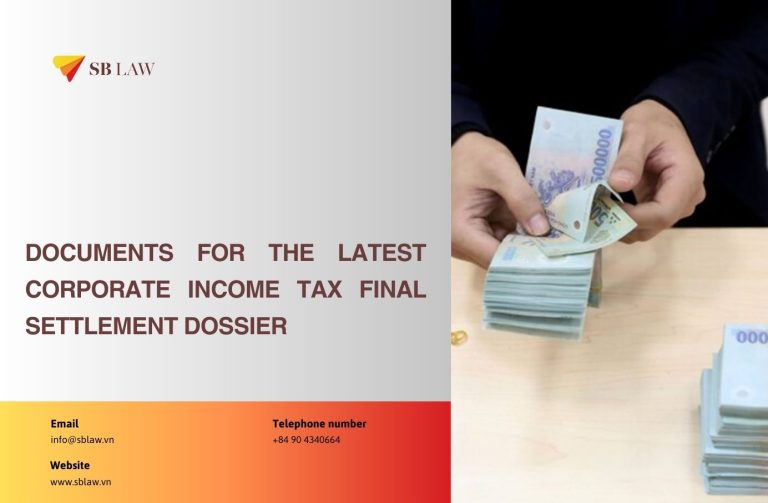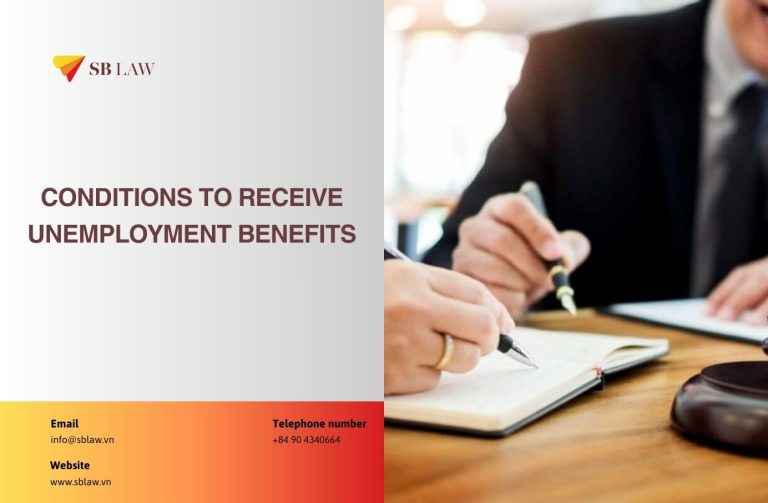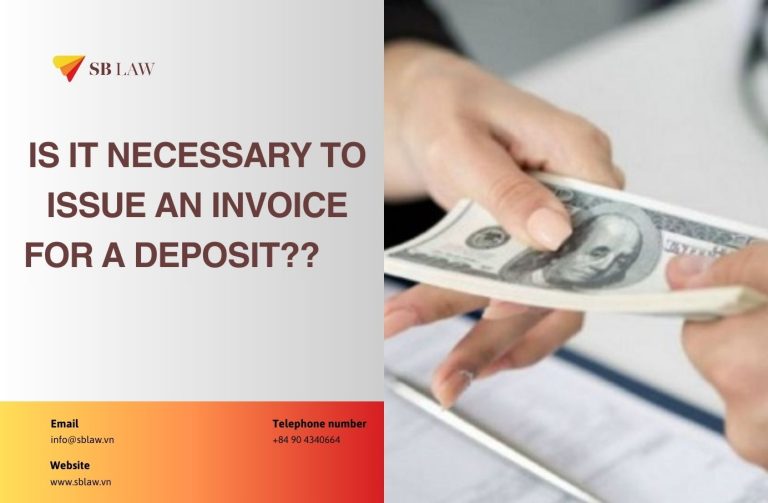Question:
I am currently a Foreign Investor according to the laws of Vietnam and I want to set up a Company to carry out the Manufacturing Business in Vietnam. To be clear, my intention is to establish a Subsidiary of a Foreign Company in Vietnam, and hold the manufaction sequence at such Vietnam-based Subsidiary's factory. I was wondering if SB Law could asist me in this situation? Please respond and thank you for your cooporation.
Response:
SB Law thank you for your interest in our legal consulting services. Regarding your questions, we would like to advise as follows:
1. PRELIMINARILY COMMENTS OF SBLAW
INVESTMENT REGISTRATION PROCEDURES
According to Investment Law 2014, an investment in the form of the establishment of an economic organization will require a Foreign Investor to go through a two-step licensing process. The first one is investment conditions and the second being business conditions (also known as business condition or baby permit). In summary, under applicable laws the following procedures need to be implemented:
- Step 1: Apply and obtain an Investment Registration Certificate (IRC) for the investment project, especially the status Export Processing Enterprise (EPE) shall be recorded in the IRC accordingly.
In practice, depends on local government of where the investment project is located, In-approval for Investment Decision must be granted by Provincial Government prior to issuance of the Investment Registration Certificate to the investment project.
- Step 2: Registration of a Foreign Invested Company conducting the investment project by obtaining Enterprise Registration Certificate (ERC) of the FIC.
- Step 3: Registration of an Export Processing Enterprise (EPE) to the relevant Customs Departments.
- Step 4: Upon obtainment of In-approval for Investment Decision (if any) and IRC and ERC, the FIC may need to apply for additional Business Licenses/Permits if so required by laws. This depends on the business line, products that will be manufactured, and whether the production will have an impact on the environment. Those Business Licenses may include:
- Construction Permit – in case Client intends to build a new factory or a warehouse;
- Land Use Right Certificate (LURC) – in case Client intends to rent a land to build factory/warehouse or acquiring a factory subletting;
- Register an Environmental Impact Assessment Report or an Environmental Protection Plan (depending on the scale and nature of the project, sometimes this sub-license must be conducted before applying In-approval for Investment Decision prescribed in Step 1);
- Fire Prevention and Fighting Certificate;
- Announcement of technical regulations conformity; and
- Other permits as the case maybe.
Note: During the licensing process, the provincial licensing authorities might consult higher-level authorities and other provincial authorities for approvals before granting licenses to the investor. In practice, we acknowledge those administrative procedures may be prolonged. Under such situation, SB Law will make reasonable efforts to promote and complete works in the soonest possible.
-
SPECIFIC FACTORS SHOULD BE TAKEN INTO ACCOUNT FOR SETTING UP MANUFACTURING COMPANY IN VIETNAM
Regarding establishment of manufacturing company, there are important matters the Client should be aware, as follows:
- The proposed location of investment project;
- Export Processing Enterprise (EPE);
- Investment capital;
- Labor issues;
- Environmental protection and industrial waste treatment; and
- Investment incentives.
-
The proposed location of investment project
-
Manufacturing company/factory is located inside of industrial zone/processing zones
In general, there are no restrictions on the location of the factory, so that, you can establish your manufacturing company either inside an industrial zone or outside of it. However, processing/manufacturing activity is not encouraged to conduct within residential area or inner-city area. Vietnam competent authorities encourage foreign investors to locate their factories within industrial zones/processing zones for gaining many advantages, such as: easily access to available infrastructures e.g. fire-fighting and waste treatment system, entitled to tax incentives, preferential land rental etc., therefore, your factory would already be in compliance with the requirements. Firms investing in these zones typically enjoy preferential governmental policies and advantages like modern infrastructure and greater access to utility services on top of preferential tax and/or tariff rates.
-
Manufacturing company/factory is located outside of industrial zone/processing zones
In the case of foreign investors intend to put plants outside industrial parks, export processing zones, high-tech zones and economic zones, etc., the investors should contact the Department of Natural Resources and Environment for referral location of project implementation. Working with the provincial-level and local-level Department of Natural Resources and Environment to find out whether the planned location is suitable for land-use planning or not is kindly advisable since the investors have to obey with master-planning of local government as well as district-level government. In addition, Client should carefully check the following issues before concluding the deal: the factory’s capability for processing, necessary facilities such as fire-fighting and waste treatment system, the applied/collected specialized licenses such as Environmental Impact Assessment Report, legal ownership documentation of the land/building/factory, and the landlord is authorized for providing real-estate rental services, etc. Preferential governmental policies such preferential tax and/or tariff rates are still available in this case if the foreign investors met the statutory criteria required to preferential entitlement.
-
Export Processing Enterprise (EPE)
Export Processing Enterprise (EPE) are enterprises specializing in production of export goods and provide services for production of export goods and export activities, which are established and operated under the Government's regulations on EPE. EPE are exempted from export tax or import tax on goods exported from export processing zones to foreign countries or from foreign countries imported into export processing zones and enjoy tax incentives for special cases, especially encourage investment in accordance with the provisions of Vietnam law.
-
Investment capital
Although Vietnam law does not imply a minimum of required charter capital/investment capital for manufacturing company. However, the investment capital should be consistent with scale and purpose of investment project. The range varies from US$ hundred-thousand for the medium to US$ millions for big ones. The Investor could contribute investment capital by cash or fixed-assets like machinery, equipment, etc. or combination of those means.
-
Labor issues
Manufacturing is a labor-intensive industry because it affects the community where factories is located, however, foreign-owned enterprises located within industrial zones have created many new jobs for local Vietnamese workers, which has reduced the country’s unemployment rate. Current policy of Vietnam State does not favor enterprises those recruit high volume of low-skilled workers just to do simple jobs. The Investor might be required to present its labor planning, welfare scheme for employees, etc. when performing investment registration.
-
Environmental protection and industrial waste treatment
The factory must meet requirements for waste treatment and pollution control. If machinery/equipment is old-fashioned technology or has been used for many year, the investment project can be strictly assessed by competent authorities before granting approval. Especially, (i) Plan on treatment of pollution and waste, and (ii) Plan on fire fighting and prevention will be required to prepared and submitted to the Licensing Authority accordingly.
According to applicable laws, regarding the electronic equipment/components production, if the factory’s capacity is from 500,000 products per year upwards, Report on environmental impact assessment of the factory must be obtained.
-
Residency Requirement applicable to Legal Representative of Vietnam-Based Company
According to Vietnam Law on Enterprises, the Legal representative of Vietnam- based company is required to residing in Vietnam, as a resident. Under point of view of Tax Authority, a person can be deemed as "resident" if such person lives at least 183 days per year in the country; or if such person has obtained a so-called "Temporary Residence Card" in Vietnam. Thus, technically, if the foreign Legal Representative has "Temporary Residence Card" and made a "Power of Attorney" for assigning his/her rights and obligations to another person (usually another manager of the company), such foreign Legal Representative does not need to be physical presence (living) in Vietnam; however, he/she still must responsible for any decisions that their proxy made for and on behalf of them. More importantly, once the Legal representative is deemed as a "resident in Vietnam", annually he/she must to declare and finalize all of his/her global incomes and to pay taxes in Vietnam. For avoidance of this burden, some enterprises choose the “legal work-around” that they register two (02) Legal Representatives, the local one resides in Vietnam while the foreigner does not. The local Legal Representative which lives in Vietnam shall be limited his/her rights/obligations/duties against the company, e.g. he/she is not allowed to sign commercial contracts but corporate reports, etc. Therefore, the company’s operations and managerial matters shall be decided by the non-residing foreign Legal Representative.
In summary, we kindly suggest two (02) below options for your consideration:
- In case of having 01 foreign Legal Representative, Work Permit and Temporary Residence Card must be applied and obtained for this person; OR
- Having from 02 Legal Representatives upward, at least one of them is local and reside in Vietnam.
-
SCOPE OF WORKS
Following works are proposed based on the request of Client. However, depending on the specific position/situation of Client, several work items may not be necessary. Meanwhile, other works may be required. However, any additional works shall not fall under the scope of this Legal Service Proposal, but could be provided upon request.
DESCRIPTION |
Pre-licensing procedure1. Consulting: · Attending various meetings with client to explain and confirm the main principles for (i) Investment Registration and Company Incorporation of foreign-invested manufacturing company in Vietnam, and (ii) the Foreign Invested Company shall be registered under status of Export Processing Enterprise (EPE) (the “Project”); · Preparing a list of legal documents required for the appraisal of the set-up company. Based on the information provided by client, we will review and incorporate these documents into the application file; 2. Drafting documents: · Drafting the Application Dossier for obtainment of related In-Approval of Provincial People’s Committee. · Drafting the Application Dossier for applying Investment Registration Certificate. · Drafting the Application Dossier for applying Enterprise Registration Certificate. · Drafting the Application Dossier for registration of an Export Processing Enterprise (EPE) to the relevant Customs Departments. · Drafting the Charter of the Company. · Drafting necessary papers/documents as the case maybe. |
Licensing procedure· Reviewing and assembling all required documents to be included in the application file for submission purpose. · Representing Client to submit the application file to competent authorities. · Acting as Client's attorney to follow up with the competent authorities. · Keeping Client updated on developments and additional requirements, if any; and · Delivering results to Client. |
Post-licensing procedure· Making public-notice on incorporation of the company as required bylaws. · Registering new Corporate Stamp and Stamp Specimen Registration Certificate of the Company. · Assisting Client with bank account opening. |
Roadmap for carrying out above scope of work can be describled in detail as follows:
- Preparing the application dossier: We anticipate that this phase shall be completed within 05 – 10 working days from full receipt of information and document provided by Client.
- Submission of application dossier: Within 02 – 03 working days from full receipt of necessary information, we will submit documents to the competent authorities.
- Licensing Procedure:
- Applying for Investment Registration Certificate (IRC): around 40 working days from submission of valid application dossier.
- Applying for Enterprise Registration Certificate (ERC): around 05 – 10 working days from submission of valid application dossier.
- Registration of an Export Processing Enterprise (EPE) to the relevant Customs Departments: around 30 – 40 working days from submission of valid application dossier.
- Post-licensing procedure: around 05 – 10 working days upon the submission of valid application dossier.
Note: During the licensing process, the licensing authorities might consult higher-level and/ or relevant authorities for in-approvals before granting license/approval/certificate to the investor. In practice, we acknowledge those administrative procedures may be prolonged. Under such situation, SB Law and its Partner/Affiliated/Contractor will make reasonable efforts to promote and complete works in the soonest possible.
Customers can refer to more consultation contents of related issues via the link:




